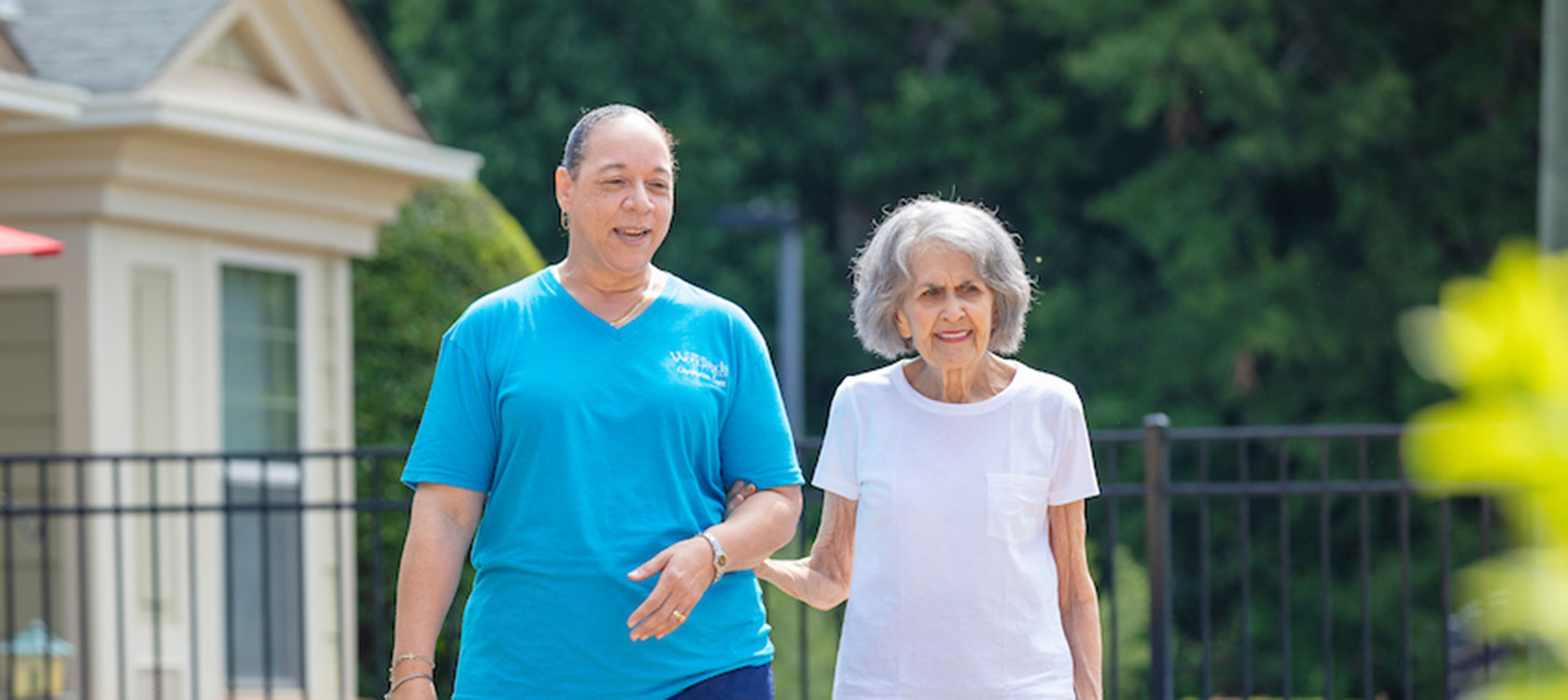
06 Dec When Do People with Dementia Need 24-Hour Care?
Posted at 13:06h
in Blog
If you’re caring for a loved one with Alzheimer’s disease or another form of dementia, you likely devote a lot of energy to tending to their needs. But as their condition progresses, you may find yourself questioning whether you’ll be able to meet the escalating demands of caregiving. At what point does someone with dementia need 24-hour care? The following signs can help you recognize when round-the-clock care would be the best choice for your loved one’s — and your — well-being.
1. Repeated Wandering
According to the Alzheimer’s Association, 60% of people with dementia will wander at least once. That’s because, as the condition progresses, dementia can erode the ability to recognize familiar places, causing confusion and leading your loved one into potentially dangerous situations. If wandering becomes a habit, you may question whether someone with dementia can be left alone, and worry about taking even a short break from your caregiving responsibilities.
2. Behavioral Changes
Dementia can affect people’s personalities and behaviors, leading to agitation, verbal and physical aggression, and sometimes violence. A person with dementia is not to blame for their challenging behaviors, but caregivers can understandably find these behaviors upsetting and may have difficulty managing them effectively and safely.
3. Sundowning
As day turns to night, people with Alzheimer’s or other forms of dementia may experience sundowning, an increase in restlessness, confusion, irritability and agitation. This late-day confusion may affect your loved one’s sleep patterns, making it difficult for them — and their caregivers — to get adequate sleep.
4. Delusions and Paranoia
As dementia takes its toll on memory and cognition, your loved one may not be able to accurately discern reality. They may become suspicious, mistrustful or even paranoid, sometimes accusing caregivers of theft or of trying to harm them, perhaps even refusing care. In such situations, it can be difficult — or impossible — for family caregivers to provide the support their loved one needs.
5. Escalating Health Issues
Physical health and function often decline as cognitive abilities deteriorate. Your loved one may lose the ability to perform activities of daily living (ADLs), such as dressing, bathing, grooming, and going to the bathroom unaided. Mobility issues or conditions such as incontinence can make caregiving more physically challenging and more demanding of your time and attention.
6. Caregiver Burnout
Caregiving is stressful work. That’s especially true of people caring for loved ones with dementia. According to the Alzheimer’s Association, caregivers of people with dementia are twice as likely to report substantial emotional, financial, and physical challenges than caregivers of people who don’t have dementia. As the demands of caregiving increase, you’ll have less time to tend to your own needs, making you more susceptible to caregiver fatigue and burnout. Signs that you’re experiencing caregiver burnout include:
- Changes in appetite
- Gaining or losing weight
- Feeling overwhelmed, hopeless, depressed, resentful or isolated
- Losing interest in activities you once enjoyed
- Fatigue
- Insomnia or changes in sleep patterns
- Health concerns such as frequent headaches or physical pain
Options for 24/7 Dementia Care
If you’re wondering at what point someone with dementia needs 24-hour care, one of the best steps you can take is to begin researching options in dementia care. Even if you aren’t ready to make changes in your loved one’s care right now, you’ll have the information you need when the time comes. Basically, 24-hour dementia care takes two forms: in-home care or memory care.
- In-home care involves a team of professional caregivers who can work either around the clock or part-time to give family members a regular break. Trained caregivers bring experience to the work, but home care services may be expensive.
- Memory care, often offered at a continuum-of-care senior living community, brings the same round-the-clock professional support as in-home care. However, it has the added benefit of a specialized environment, with safety features, therapies, activities, and social opportunities designed specifically to support people with Alzheimer’s disease or other forms of dementia.
Memory Care at The Woodlands at Furman
Our personalized approach to memory care at The Woodlands at Furman creates an environment in which residents are safe, engaged in activities they enjoy, and supported by trained caregivers who assist with activities of daily living. Private suites and chef-prepared meals offer the comforts of home, while a warm rapport with staff members ensures residents have a care plan that’s tailored to their unique needs and preferences. If you’re wondering at what point someone with dementia needs 24-hour care, contact us. We’ll be happy to answer your questions or tell you more about memory care at The Woodlands.

